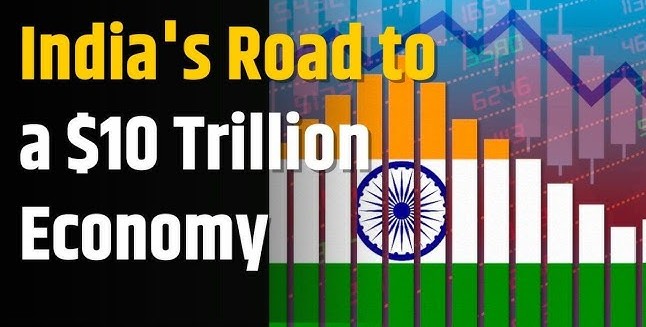 Image Source : DD News
Image Source : DD News
India stands at a pivotal moment in its economic journey, showcasing impressive growth rates and emerging as a global economic powerhouse. Yet, experts emphasize that to sustain and accelerate this momentum, the country must intensify efforts to strengthen institutional frameworks and foster meaningful linkages between industry and academic or research institutions. These enhancements are critical to translating India’s abundant scientific capabilities and economic potential into tangible innovations, industrial competitiveness, and inclusive growth.
Key Highlights Reflecting India’s Institutional and Industry Challenges
Despite India’s rich scientific base and growing economic clout, gaps in institutional quality and coordination hinder the efficient translation of knowledge into market-ready technologies and solutions.
Stronger institutional frameworks are needed to streamline regulations, boost research and development, and catalyze investments in advanced sectors.
Effective industry linkages, especially between universities and the private sector, are essential to enhance skill development, foster innovation, and increase employability.
Experts underline the need for removing silos within scientific ecosystems to promote multidisciplinary collaboration and global talent integration.
Government initiatives like the National Educational Policy (NEP) 2020 and Atmanirbhar Bharat emphasize enhanced university-industry partnerships and ecosystem development to bridge the gap between academia and industry.
Bridging Institutional Gaps For A Knowledge-Driven Economy
India’s ability to generate scientific knowledge is substantial, but converting this into technology and commercial success requires nimble and robust institutional mechanisms. Current frameworks often suffer from fragmentation, outdated policies, and inefficiencies that delay innovation and scale-up. Experts call for reforms that simplify regulations, encourage compliance without excessive bureaucracy, and harmonize funding and governance structures across institutions. Regular monitoring and updates to frameworks are recommended to keep pace with evolving economic and technological realities. Embedding such reforms within a transparent, inclusive, and consultative approach can enhance the impact of India’s institutional strengths.
Strategic Importance Of University-Industry Collaboration
The National Educational Policy 2020 spotlighted university-industry linkages as a cornerstone for delivering industry-ready talent and co-creating knowledge-based solutions. By fostering partnerships between academia and businesses, India can offer students experiential learning through internships, field training, and apprenticeships that equip them with practical skills. Establishing research and development clusters and innovation hubs that bring together faculty, students, and industry professionals is projected to accelerate technological advancement and product commercialization. Such linkages also help industries access academic expertise and research facilities, driving competitiveness and sustainability in sectors ranging from manufacturing to information technology.
Enhancing Skill Development To Meet Industrial Needs
Inadequate industry integration results in a workforce that often lacks the specialized skills demanded by emerging sectors. Effective linkages could nurture a culture of continuous learning and upskilling aligned with industrial evolution. This also supports the aspirations of India’s burgeoning youth population by enhancing employability and facilitating smoother transitions from education to employment. Efforts to align curricula with market demand, involving industry experts in academic governance, and leveraging technology for smart learning environments are vital components of this strategy.
Policy Drivers and Recent Initiatives Supporting Reform
Government programs have begun laying the foundation for stronger institutional ecosystems. Policies such as Atmanirbhar Bharat prioritize innovation, entrepreneurship, and technological sovereignty, while schemes that incentivize research and private investment seek to catalyze industry participation. National frameworks also focus on inclusivity by addressing the needs of vulnerable groups and bridging regional disparities. Incremental improvements in ease of doing business, streamlined approval processes, and investment facilitation further complement institutional rejuvenation and industry integration efforts.
Looking Ahead: The Path To Inclusive, Sustainable Growth
For India to crystallize its aspiration of becoming a $10 trillion economy and a global innovation hub by 2047, a robust and dynamic institutional architecture coupled with thriving industry linkages is indispensable. These components will not only accelerate economic productivity and technological capabilities but also ensure equitable growth and job creation across sectors and geographies. Continuous dialogue among policymakers, academia, industry leaders, and civil society will be key to evolving adaptive frameworks that respond to India’s diverse and rapidly transforming economic landscape.
In conclusion, while India’s strong scientific talents and economic growth story are commendable, significant work remains in reforming institutional frameworks and deepening industry linkages. Through coordinated reforms, collaborative ecosystems, and sustained investments in human capital, India can unlock its full innovation potential and shape a self-reliant, competitive, and inclusive future.
Source: Press Information Bureau, TenNews, University Grants Commission, InsightsonIndia, KPMG India, Ethical Trade Initiative
Advertisement
Advertisement







